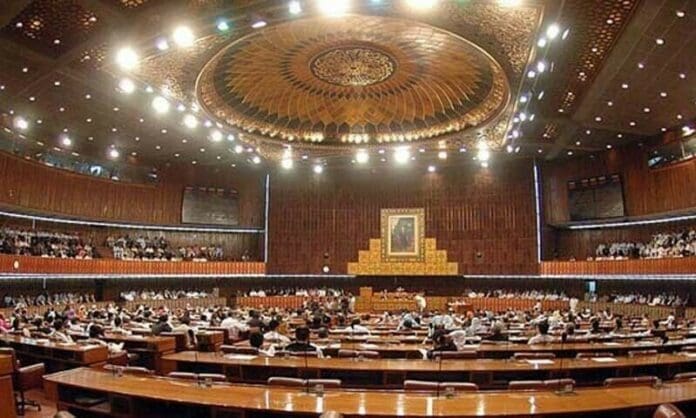The President of Pakistan, Arif Alvi, recently made a surprising statement claiming that he did not sign the bills to amend the Official Secrets Act and the Pakistan Army Act into law. These bills have been widely criticized by both the opposition and the treasury benches. Let’s take a closer look at the amendments proposed in these bills.
Official Secrets (Amendment) Bill, 2023:
The amendments made to the Official Secrets Act include broader definitions of military installations and the inclusion of digital and modern means of communication. This means that vloggers and bloggers could now fall under the ambit of this law as well.
The definition of a “document” has also been expanded to include any written, unwritten, electronic, digital, or tangible/intangible instrument related to the military’s procurements and capabilities.
The proposed law introduces the definition of “enemy” as any person who is directly or indirectly, intentionally or unintentionally working for or engaged with a foreign power, foreign agent, non-state actor, organization, entity, association, or group involved in acts prejudicial to the safety and interest of Pakistan.
Experts argue that this section is against the principles of natural justice as it treats unintentional contact the same as planned espionage.
The amendments also include a new offense of unauthorized disclosure of the identities of members of intelligence agencies, informants, or sources, punishable by up to three years in jail and a fine of up to Rs10 million.
Furthermore, the law has expanded the offense of accessing or intruding any military installation, office, camp office, or building from just during war to include peacetime as well. The amendments also include the addition of drone camera photography of prohibited areas as a crime, and visiting the address of a foreign agent within or outside Pakistan is deemed an offense.
The Federal Investigation Agency (FIA) and officials of intelligence agencies are empowered to investigate suspects for violating the Official Secrets Act. The law specifies that a designated investigating officer, not below the rank of BPS-17 or equivalent, shall conduct the investigation. If necessary, a joint investigation team (JIT) consisting of officers from intelligence agencies can be constituted. The JIT is expected to complete the investigation in 30 working days and submit the challan (charge sheet) to the special court through a public prosecutor.
The law also addresses the admissibility of evidence, stating that all material collected during the inquiry or investigation, including electronic devices, data, information, documents, or any other related material facilitating the commission of an offense under this act, shall be admissible.
It appears that this proposed law was drafted with the May 9 violence in mind, which erupted after the arrest of PTI chief Imran Khan.
Pakistan Army (Amendment) Act, 2023:
The amendments made to the Army Act introduce punishments of up to five years of rigorous imprisonment for anyone guilty of disclosing information, acquired in an official capacity, that is or may be prejudicial to the security and interest of Pakistan or the armed forces.
One of the amendments grants more powers to the Army Chief and prohibits ex-servicemen from engaging in politics or ventures conflicting with the army’s interest. The bill also proposes imprisonment for defamation of the army.
The bill introduces Section 26-B, which prohibits any person subject to the Army Act from engaging in any political activity for two years from the date of retirement, release, resignation, discharge, removal, or dismissal from the service. Those who have been posted or employed on sensitive duties are forbidden from participating in any political activity for five years from the mentioned dates. Violation of this provision can lead to imprisonment for up to two years.
Section 55-A prohibits any person subject to the Army Act in the past five years from directly or indirectly entering into employment, consultation, or other engagements with entities having a conflict of interest with the activities of the army or its affiliates, unless they seek prior approval from the Army Chief. Violation of this provision can lead to imprisonment for up to two years or a fine not exceeding Rs500,000, or both.
Section 55-B states that anyone who commits an offense under the Peca 2016 with the intention to undermine, ridicule, or scandalize the armed forces, will be punished in accordance with the Peca law.
Section 55-C states that a person subject to the Army Act who intentionally ridicules, scandalizes, brings into hatred, or attempts to lower the armed forces of Pakistan or any part thereof will be punished with imprisonment for up to two years, a fine, or both.
Additional clauses introduced include the delegation of powers by the Army Chief to subordinate officers or authorities and the requirement that the laws under the act take effect notwithstanding any inconsistencies in any other law, rules, or regulations. Any inconsistent law shall cease to have effect to the extent of the inconsistency.
Section 175-E of the legislation states that the army, with the consent of relevant authorities, may directly or indirectly engage in activities related to national development and the advancement of national or strategic interests.
